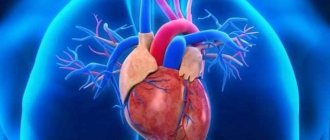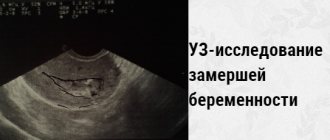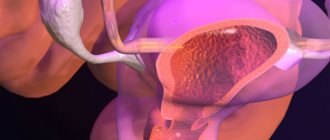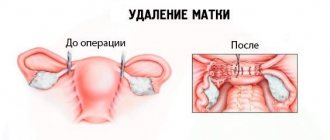Menopause is a condition that all women experience when the reproductive function of their body ends. Menopause is accompanied by various unpleasant symptoms that can be treated with folk remedies, vitamins, as well as hormonal therapy, which is the most serious.
It is worth recalling that menopause is a complex process consisting of several stages characteristic of different ages.
Here is a table with clinical recommendations for menopausal hormone therapy by age.
HRT for menopause
It became most widespread about 2 decades ago. After lengthy discussions and extensive research, it turned out that in many cases the benefits far outweigh the likely harm. Opponents of the use of HRT argued that:
- third-party interference in the natural hormonal organization can completely ruin the individual regulation of the process;
- it is difficult to choose the optimal treatment regimen for each woman;
- it is impossible to accurately calculate the required dosage;
- there is a high probability of developing side effects in the form of breast cancer, rapid development of side diseases, thrombosis, increased risk of heart attack, stroke, manifestation of vasomotor symptoms;
- There is limited evidence on the benefits of menopausal hormone therapy in the prevention and treatment of late onset symptoms and postmenopausal complications.
However, since 2015, studies have been conducted on the effects of menopausal hormone therapy, based on comparative analyzes of a large group of women, starting from 35 years of age, in conditions of early manifestation of menopausal symptoms. It turned out that the systematic and competent use of HRT under the constant supervision of a doctor mitigates characteristic ailments, reduces disorders of the cardiovascular and nervous systems, and reduces the risk of developing atherosclerosis and malignant tumors.
The issue of the relationship between taking hormonal drugs and the development of breast cancer was comprehensively studied. The risk decreases significantly when treatment is stopped, and the development of the disease in patients 50–59 years of age and older is almost unknown.
Purposes of HRT prescription
In the second half of a woman’s life, a woman’s reproductive function gradually begins to decline, while the ability to conceive remains for several more years until the ovulation mechanism completely stops. The process lasts a long time and is divided into 4 conventional stages: premenopause, menopause, postmenopause and perimenopause. There are no clear boundaries of the transition; the process smoothly passes from one part to another, is marked by the appearance of new symptoms and requires timely support of the body, and in some cases, serious treatment of menopausal symptoms. HRT is prescribed to prevent the development of age-related changes and associated diseases, such as osteoporosis, atherosclerosis and to partially compensate for the lack of hormones with the help of hormonal agents that can improve the general condition. As a result, life expectancy and its quality increase.
The use of menopausal therapy is necessary if symptoms such as:
- vasomotor disorders, accompanied by sudden mood swings, sleep disorders;
- signs of urogenital atrophy;
- sexual dysfunction;
- arthralgia, severe memory impairment;
- frequent vascular spasms, muscle pain, cramps;
- objective deterioration of the cardiovascular system;
- increased nervous excitability, rapid onset of fatigue;
- early and premature onset of menopause.
Please note! The main task of HRT is to replenish estrogens, which are close to natural hormones. Combination therapy uses drugs containing estrogens and progestogens. This measure helps protect the endometrium from uncontrolled growth. Complex therapy allows you to obtain an additional therapeutic effect, expressed in reducing the risk of fractures, heart attacks, and the manifestation of depressive and anxiety states.
Procedure before starting to take hormonal drugs
Considering options and choosing a medicine based on reviews on social networks or on the advice of friends is extremely short-sighted and harmful to health. Please note: only a doctor has the right to prescribe menopausal hormone therapy based on a thorough examination, drawing up an individual medical history, confirmed by the results of tests and examinations.
The individuality of the female body is manifested, among other things, in its reaction to hormonal disorders. The symptoms of menopause are specific and manifest themselves in different ways. The selection of drugs, dosages, and frequency of administration is based on accurate calculations and constant monitoring of the woman’s condition throughout the entire course of treatment.
Before prescribing HRT you must undergo:
- ultrasound of the uterus, ovaries, mammary glands;
- mammography;
- colposcopy;
- endometrial biopsy;
- tests for sugar, cholesterol, clotting;
- ECG;
- examination of hormonal status.
It is also necessary to take samples for oncocytology of the cervix, get advice from a cardiologist, mammologist, neurologist, endocrinologist, and ophthalmologist. Such measures make it possible to identify diseases at an early stage, study the general state of health, calculate the consequences of using hormonal drugs, and weigh the benefits and expected side effects.
The final stage of menopause, features of the use of HRT
Age-related changes affecting the female body during menopause are quite large-scale. They bring not only tangible changes, but also the unpleasant symptoms that accompany them. Sometimes the solution to the problem is only possible through surgery. Many women agree to have the uterus removed if life-threatening processes develop. In this case, menopausal hormone therapy is based on estrogen.
When all reproductive organs are preserved, the prescription takes into account the threat of mucosal proliferation, the development of endometrial cancer, and preference is given to products containing progestins and androgens.
Something to remember! Estrogen monotherapy is carried out only after surgical removal of the uterus.
The duration of the course depends on the purpose of treatment. Relieving the symptoms of palpitations and hot flashes will take a little time, the prevention of osteoporosis will have to be taken seriously, and menopausal hormone therapy will be longer.
General recommendations
In addition to the medications used for menopausal hormone therapy, it is recommended to pay attention to lifestyle to maintain a woman’s health. It significantly affects health at any age.
During menopause, the body experiences severe stress, so it is better to help it without further straining it by digesting heavy food and lack of movement.
Why is therapy needed?
Adviсe:
- Avoid alcohol, coffee, spicy and fatty foods. Stop eating sweets.
- Get rid of bad habits.
- Try to get more and better sleep.
- Do fitness. Make time for light exercise and an active walk every day.
At each stage of menopause, the risk of gaining excess weight increases significantly, as metabolism slows down.
The kilograms put stress on your legs, which increases the risk of vein problems. Excess weight is a load that has a negative effect on the joints, spine, and cardiovascular system.
Gradually give up flour and fatty foods. Eat more steamed food.
Pros and cons of menopausal hormone therapy
There are few basic rules, but compliance with them guarantees a high therapeutic effect with minimal side effects.
- For prevention and treatment, drugs containing analogues of natural hormones are used.
- The lowest possible dosages, which are calculated based on the individual characteristics of the body.
- Combined use of estrogens and progestogens to exclude the development of endometrial hyperplasia.
- After operations to remove the uterus, preference is given to estrogen monotherapy.
- The course must be completed in full; arbitrary interruption of treatment is unacceptable, even if it is designed for 5 - 7 years.
Positive sides
If the rules of use are strictly followed, relief from the painful symptoms of menopause will be felt quickly; medications have a cumulative effect, so a course of treatment is necessary to achieve maximum concentration and stabilize the results of treatment.
Taking medications containing hormones has a positive effect on many body systems.
The cardiovascular system is sensitive to changes in hormonal levels, so timely use of medications reduces the risk of heart attacks and diseases, normalizes blood pressure, and increases the elasticity of the walls of blood vessels. Blood circulation improves, reducing the risk of blood thickening and blood clots.
Changes for the better are observed for the urogenital system. The elasticity of the bladder and vaginal walls increases, the mucous membrane is restored, and resistance to infections increases.
The nervous system is very vulnerable and disturbances in its functioning are manifested by frequent emotional outbursts, manifestations of unmotivated aggression, irritability, tearfulness, feelings of anxiety, and depressive states. They significantly complicate communication and professional activities. Early administration of drugs that restore hormone deficiency helps to avoid or significantly alleviate the manifestation of these symptoms. The treatment is also effective for muscle and joint pain, signs of weakened attention and memory, and manifestations of senile sclerosis.
Read
How to get rid of hot flashes and sweating during menopause?
Negative manifestations
Since each woman’s body is unique, when determining the level of harm, we have to rely on laboratory data. Hypothetical complications include the development of endometrial hyperplasia and breast cancer. If you take medications thoughtlessly, simply by reading the instructions, you can get poisoned even with aspirin, not to mention more serious drugs. Therefore, the degree of risk for each patient is determined individually by the doctor based on a complete examination and response to medications. It is also necessary to refuse this type of treatment if there are contraindications.
Symptoms of menopause
What the first “news” from menopause will be is also difficult to predict due to the individual characteristics of each woman’s body. But despite this, every 3 out of 4 women experience similar symptoms:
- Vegetative-vascular disorders: hot flashes, sweating, chills, palpitations, pain in the heart, dizziness, numbness in the arms and legs, headache, changes in blood pressure (hypotension and hypertension).
- Emotional and mental disorders: sudden mood swings, drowsiness, memory loss, insomnia, inattention, depression, decreased performance and sexual desire.
- Changes in the urogenital tract: dryness, itching and burning in the vagina, pain during sexual intercourse, prolapse of the vaginal walls, frequent urination due to decreased tone of the perineal muscles, urinary incontinence, pain in the bladder.
- Changes in the skin and its derivatives: wrinkles, dryness, thinning and hair loss, brittle nails.
- Metabolic and endocrine disorders, which are the later of all of the above: obesity, atherosclerosis, osteoporosis, cardiovascular diseases, Alzheimer's disease.
The presence of these symptoms is explained by estrogen deficiency, and they appear in various combinations.
List of drugs used for HRT during menopause
HRT medications are available in the form of tablets or capsules, skin gel, patch, and injection. Application tactics vary.
There is monotherapy with estrogen or gestogen. In the first case, analogues of natural substances are used: estriol, estradiol, estradiol valerate. Prescribed in the form of several courses or continuous use for the prevention of osteoporosis and heart disease. Application is possible only in the absence of the uterus. The administration of a gestagen in the form of progesterone or dydrogesterone is justified in the prevention and treatment of hyperplastic processes.
The combined use of estrogen and progesterone gives good results during menopause and reduces the risk of endometrial pathologies.
When estrogen therapy for menopause is used, a number of drugs with a minimum amount of active substance are used, the prescription is carried out no earlier than a year after the last menstruation. These drugs include Premarin, Proginova, Estrofem. They are available in tablet form; the active ingredient is estriol or estradiol. Used in courses or continuously, as prescribed by the attending physician.
- Dermestril is sold in the form of tablets, spray, injection, patch, eliminates vasomotor symptoms, maintains bone density, preventing calcium loss.
- Klimara has a complex effect, relieving the main symptoms of menopause, and is sold in the form of a patch, which is attached at a distance from the mammary glands and pelvic organs.
- Ovestin is very convenient to use because it is sold in the form of cream, suppositories or tablets. Depending on the medicinal purposes, the doctor recommends a certain type and method of use. In addition to relieving discomfort in the vaginal area, it prevents the development of infectious diseases in the urogenital area, restores the mucous membrane, maintains calcium concentration in the bones, preventing the development of osteoporosis.
Note! The use of this group of drugs for women with a preserved uterus must be combined with drugs containing gestagen or androgens. The attending physician will necessarily develop an individual dosage regimen and calculate the duration of treatment.
In combined products, the negative effect of estrogens on the condition of the endometrium is compensated by the introduction of gestagens or androgens. To relieve the symptoms of menopausal syndrome and prevent disorders, the doctor may prescribe:
- Climodien, which prevents the endometrium from growing and has a supporting effect on the cardiovascular system by balancing 2 types of cholesterol;
- Kliogest, which has proven itself as a prophylactic against the development of osteoporosis, heart, genitourinary, and gynecological diseases;
- Livial contains tibolone as an active ingredient, which successfully combines the properties of gestagens, androgens and estrogen, which maintains the thickness of the endometrium within normal limits, while simultaneously preserving calcium and increasing the intensity of cerebral circulation;
- Femoston 1\5 is prescribed to prevent osteoporosis, prevent vascular spasms, restore the mucous membranes of the genitourinary system, and increase libido.
All of these drugs can be taken in long courses. Menopausal hormone therapy is carried out only on the recommendation and under the supervision of a physician.
When choosing a form of administration, it is worth considering that tablets and capsules are more convenient to use, improve the blood lipid spectrum, but cause an increased load on the liver, require a large dose of the drug, since part is absorbed and prematurely excreted by the gastrointestinal tract, cause disturbances in the bile ducts, promote the formation gallstones.
Gels and patches ensure rapid delivery of medication, while minimizing losses. This method is preferable for kidney disease, liver disease, gastrointestinal disorders, slow metabolism, high blood pressure, frequent migraines, it allows you to reduce interactions with other drugs, reduce the dosage of estradiol, and, if necessary, quickly stop treatment.
Reception regimens and regimens
They are aimed at eliminating various manifestations of menopause that occur when the hormonal function of the ovaries is insufficient or completely absent.
The short-term regimen provides for a treatment period of 3 to 6 months and is aimed at preventing the main manifestations of menopausal syndrome: hot flashes, dizziness, migraine attacks, joint and muscle pain, sudden changes in pressure, exacerbation of emotional reactions. It is possible, if necessary, to repeat the course.
Long-term use of drugs is designed for 5 - 7 years. This period of time is due to the preventive task of supporting the functioning of the cardiovascular system, preventing the development of Alzheimer's disease, osteoporosis, and disorders of the volitional and emotional sphere. In some cases, treatment continues for up to 10 years or more, under regular medical supervision with examinations once a year.
Reception modes include:
- monotherapy for women who have had their uterus removed and there is no risk of endometrial growth;
- prescription of biphasic and triphasic estrogen-progestin drugs;
- combination of estrogens and androgens.
Clinical recommendations for menopausal syndrome
The first thing women begin to notice is the irregularity of menstruation. Not only the time intervals between them change, but also the abundance.
Hot flashes are the most typical and most common complaint. Usually this is the first call. But, unfortunately, not every woman interprets this symptom correctly. This is a sudden feeling of heat in the face and neck, spreading to the upper body.
Hot flashes, even in a state of absolute rest, are accompanied by sweating, dizziness, anxiety, suffocation, weakness, and tachycardia. More often, these symptoms appear at night or during emotional stress, after drinking hot drinks, spicy food, or alcohol. They can last from 2 to 10 years.
To reduce the manifestation of symptoms, it is recommended to wear loose clothing made from natural fabrics, do morning exercises, take walks before bed, follow a diet low in animal fats and carbohydrates, and limit broths, spices, and coffee.
The diet should include: vegetables, fruits, black bread with bran, dairy products, dried apricots, raisins, nuts and herbs. Also useful are general massage, hydrotherapy (douches, pine and sage baths, contrasting foot baths), balneotherapy (pearl, oxygen, foam and nitrogen baths).
How to deal with depression
The most dangerous psychological change is depression. Hormonal shocks also affect a woman’s psyche; she begins to feel lonely and useless, and her life is over and devoid of any joys.
During this period, she needs the support and attention of loved ones. Usually, this condition cannot be dealt with without the help of a doctor. If you notice such symptoms in yourself, don’t expect it to go away on its own, contact your gynecologist!
If necessary, your doctor will prescribe you hormone replacement therapy containing estrogens and gestagens. The use of sedatives ( tinctures of valerian, motherwort, sedatives, afobazole, tenoten, phytosed ), complex intake of vitamins and minerals ( lora, supradin, complivit , etc.) is also indicated.
Healthy herbal tea : 2 tbsp. spoons of chamomile + 30 g of valerian roots + 30 g of peppermint. 2 tbsp. spoons of the collection pour 0.5 liters of boiling water, let it brew in a thermos for 3 hours, strain and take a glass 15 minutes before meals in the morning and evening.
The metamorphoses do not stop there. Over time, the deficiency of female sex hormones becomes more and more noticeable, and this inevitably leads to worsening problems with the cardiovascular system and pain in the heart area.
This condition is due to the fact that cholesterol is deposited on the walls of blood vessels, and their elasticity decreases. As a result, there is a risk of developing angina pectoris, myocardial infarction and cerebral stroke. Be sure to consult a cardiologist, because only a specialist can select the necessary therapy with hypotensive and antiplatelet drugs.
Treatment of disorders of the genitourinary system
Statistics show that within three to five years after the last menstruation, every second woman begins to experience disorders of the genitourinary system.
Itching and burning in the intimate area are often the cause of discomfort. If it is simply dry mucous membranes (atrophic vaginitis), local use of creams, gels and vaginal suppositories with estradiol will help: estriol, Ovestin, Estrocade, Dermestril, Climara, Divigel, Ovestin, Monta Vit, Ginocomfort, Feminela, Vagical , etc.
“Before use, consult a doctor!”
Avoiding scented pads and intimate gels will help reduce the symptom, and it is better to use baby powders for washing underwear. Don't give up on your intimate life. Regular sex normalizes the condition of the vaginal mucosa. To reduce discomfort, you can use lubricants (intimate lubricants) and mucous moisturizers.
Drink more fluids - at least 1.5 liters per day, as a lack of water can cause dry mucous membranes.
To replenish estrogen, include in your diet fatty fish, dairy products, nuts and seeds, vegetable oils, as well as omeganol, fish oil, rich in omega-3 and 6 fatty acids.
Due to a lack of estrogen, the concentration of calcium in the blood decreases, the body looks for ways to replenish it and begins to “take it” from the bones. The process of bone tissue loss begins - osteoporosis. Bones become fragile, and women aged 50-55 years are susceptible to fractures.
It is recommended to use calciferol (500 IU per day), calcium D3 nycomed and calcemin - in the complex therapy of osteoporosis, 1 tablet. 2 times a day with meals. For the prevention of osteoporosis - 1 tablet 1 time per day. The average course duration for prevention is 2 months, for the treatment of osteoporosis - 3 months.
It is known that the skin contains a large amount of collagen, the amount of which decreases significantly during pre- and postmenopause. Therefore, over the years, facial skin becomes dry and less elastic. This is often accompanied by dryness of the nasal mucosa, conjunctiva, hair loss and brittle nails.
Hormone replacement therapy (HRT) with estrogen has a proven therapeutic effect on dry skin, helping to maintain moisture and elasticity.










